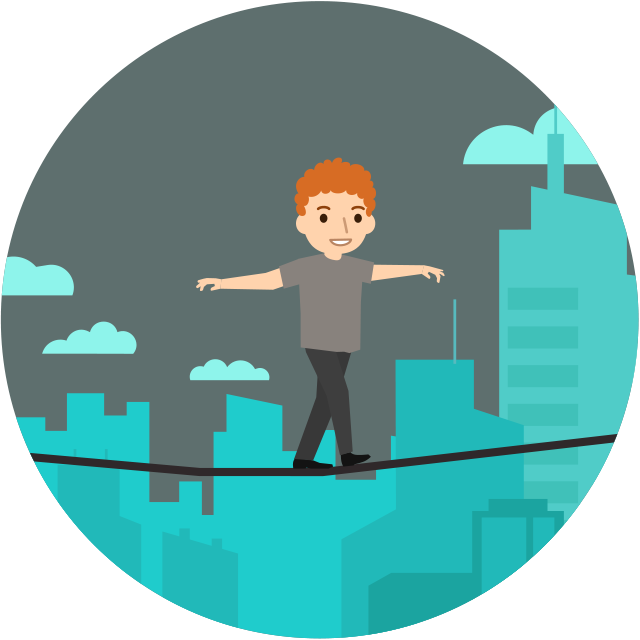Automatic language translation
Our website uses an automatic service to translate our content into different languages. These translations should be used as a guide only. See our Accessibility page for further information.
Have you ever made a poor decision? Did other people disagree? What happened when you acted on the decision? Did you learn from the mistake?
Everyone has their own values, morals, beliefs, attitudes, likes and dislikes. You may think that a person has made an unwise, reckless, risky or wrong decision, but you cannot assume that they do not have decision-making ability just because you disagree. The majority of people take chances or make 'bad' decisions once in a while. This is how they gain experience in decision-making.
And, the right to make decisions includes the right to make decisions with which others disagree. This is 'dignity of risk'.

What does the move in international policy towards equal autonomy of choice and support to exercise legal capacity mean for people with disability?
The UNCRPD mandates equal recognition before the law and support to exercise legal capacity for people with disability. This includes providing support for the choice to take risks - dignity of risk.
We all learn how to make decisions by practising decision-making and by making mistakes. But, many people with disability have not had this opportunity. Even small decision-making opportunities have been removed from some people with disability, and this has reduced their experience of decision-making.
We must now actively assist people who may not have been allowed to make decisions previously to build their ability to make their own decisions, including decisions with risk.
Let's see how this works.
Recently, Jack has been bumping and scraping his car quite frequently. He keeps repeating himself when talking, and forgetting where he can find common items in his home.
His family noticed that he keeps forgetting to turn up to planned events. After discussions with his family about the possible consequences of having a serious accident and about the many different options he had for getting around, Jack decided that he did have numerous transport options and no longer really needed to drive.
In fact, Jack decided he would sell his car and use the money to take the holiday he had been saving for. All he really needed was his family to take time with him and explain his options so he didn't lose his independence.
*UNCRPD - United Nations Convention on the Rights of Persons with Disabilities
As seen earlier in the module, the UNCRPD requires us to update the concept of 'duty of care' to include our obligation to support a person to experience and understand risk. This means supporting a person to identify and reduce or remove risks, and to assist in building their capacity for self-protection, rather than restricting their decision-making and moving to substitute decision-making prematurely. This is called 'risk enablement', and increases a person's dignity by empowering them to make their own decisions instead of removing decision-making which involves risk from them.
So, supporting a person's decision-making may require assisting a person to analyse the potential risks involved for different decision options, the severity of these risks and the likelihood of the risks.
"When supporting a person to make a decision, I encourage them to discuss the decision with others in their life. This helps them consider different views and mitigation strategies. I help them evaluate the seriousness of any risks linked to their decision and weigh up the benefits of possible actions against any potential harm. But I make sure that the final decision is their decision.
I record the support process and document the reasons for supporting the person's dignity of risk. This increases the probability of covering any duty of care that I may have to protect them against any potentially harmful outcome.
Obviously, where the process of supported decision-making identifies risks of significant severity, with high likelihood, and no possibility of mitigation, and the person still wants to exercise this choice, I will take steps to explore whether the situation requires further supported decision-making or, as a last resort, substitute decision-making. A good example of this is the story of Rohan. I'll let his son tell you more about it."
Last updated: